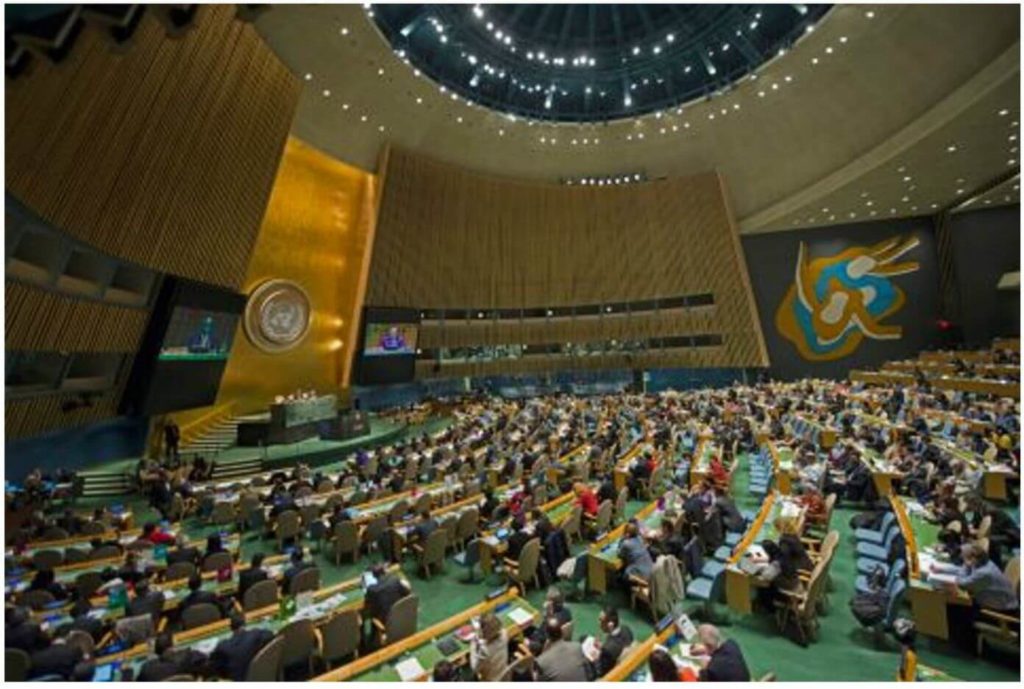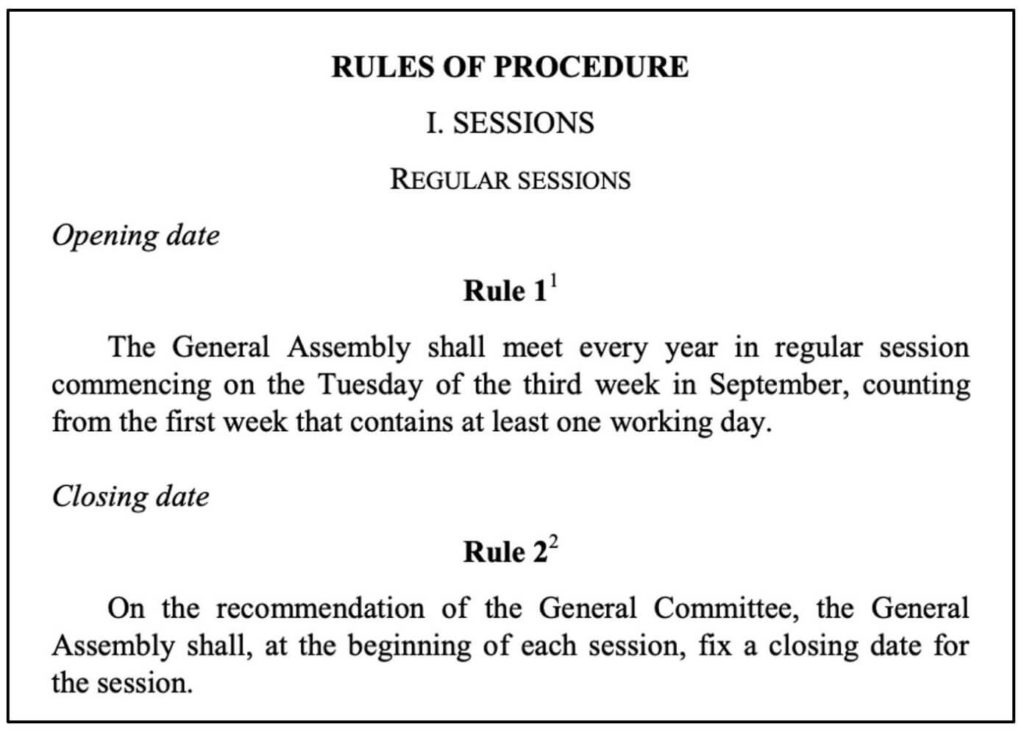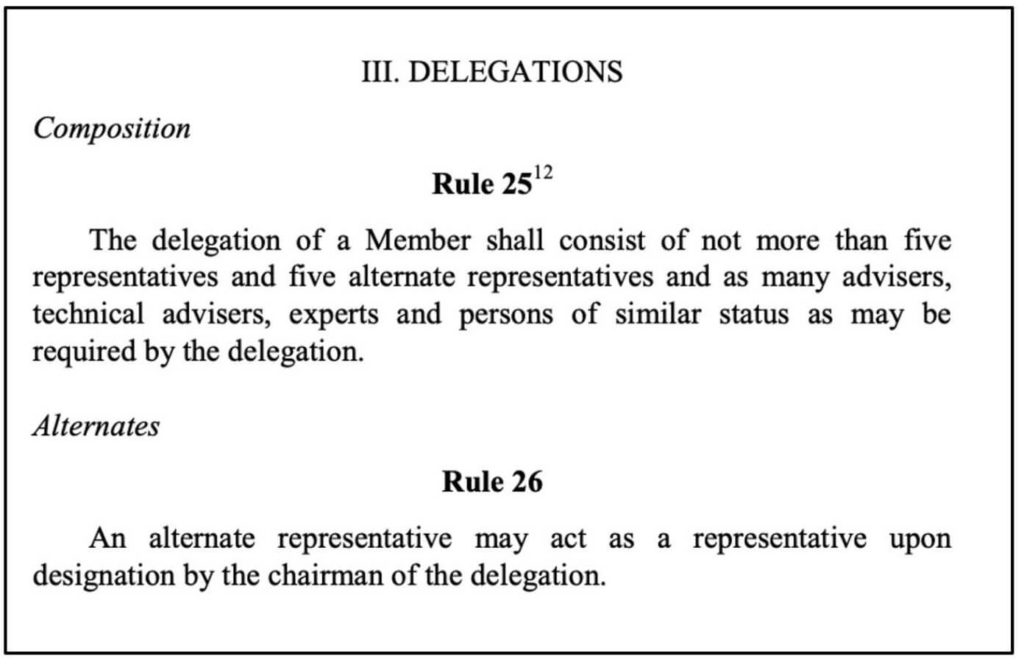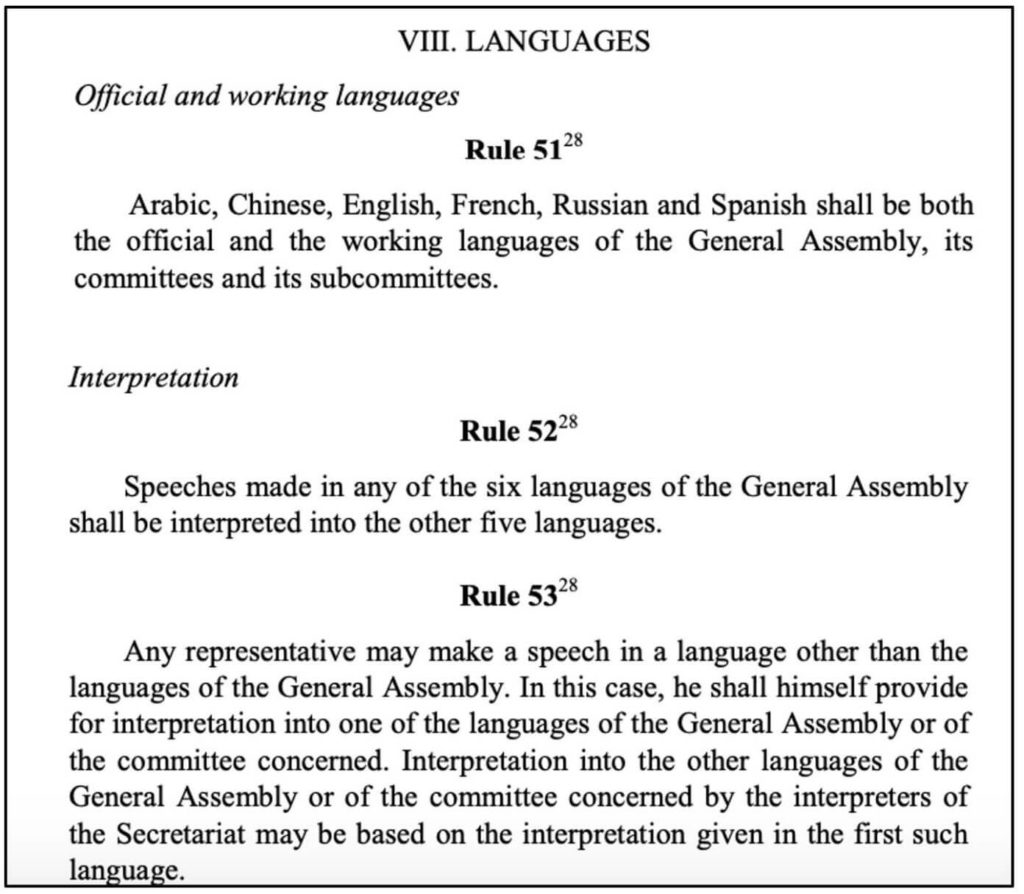[orc]Every year, the United Nations General Assembly (UNGA) meets in New York. But what happens at the UNGA? How are things decided? Here is a detailed explainer.
Pakistan’s Prime Minister, Imran Khan made his maiden speech at the 74th United Nations General Assembly (UNGA). His speech, which mainly targeted the abrogation of Article 370 by the Indian Government exceeded the stipulated time limit for each leader by more than 30 minutes. But what is the time allocated for each leader to speak? What are the languages that can be used? How many representatives from each country are allowed to participate? Here is a detailed explainer on what the UNGA is and what its Rules of Procedure are.
What is the United Nations General Assembly (UNGA)?
The General Assembly is a diplomatic forum where the 193 member nations of the UN are represented in order to engage in discussions and take action on international issues such as peace, security and development. The UNGA, established in 1945, is one of the six main organs of the organisation, the rest five being the Security Council, the Economic and Social Council, the Trusteeship Council, the International Court of Justice and the UN Secretariat.

The objective of the UNGA is to promote international co-operation among all nations in the political, social, cultural, economic, educational and also health fields while assisting in realization of human rights and fundamental freedom for everyone. Development of international law and its codification also takes place at the UNGA as per the UN charter.
When does the Assembly gather?
The Assembly would meet every year in regular session commencing on the third Tuesday of the month of September at the UN headquarters in New York, USA. Special sessions can be summoned by the General Secretary at the request of the Security Council or majority of members. This year, the 74th General Assembly began on 24 September 2019 and came to an end on 30 September 2019.

How are decisions made?
In order to make decisions on important questions related to maintenance of international peace and security, election and admission of members, budgetary questions and more, voting takes place. The quorum for the meetings to take place is that at least one third of the members of the General Assembly are present. Of these, two thirds majority of the members present and voting is required to make a decision on the above mentioned issues. Those members who have not paid their contributions may not be permitted to vote. Each member nation has only one vote.
The General Assembly elects a President and twenty one Vice Presidents for each session. The election will be highly representative in nature. A total of six representatives from the African states, five from Asian, one from Eastern Europe, three from Latin American states, two from Western European states or others and five from the permanent members of the Security Council. All elections are held by secret ballot. The President cannot vote, but in his place can designate another member of his delegation to vote. The President of the 74th session is Tijjani Muhammad-Bande of Nigeria.
How many representatives are allowed for each member Nation?
The delegation of a member nation can have only a maximum of five representatives and five alternate representatives in the General Assembly. They are also permitted to have as many advisers, technical advisers and experts as per their requirement.

What are the languages that can be used in UNGA?
Arabic, Chinese, English, French, Russian and Spanish are the official languages and the working languages of the UNGA, committees and sub-committees. If speeches are made in one of these languages, interpretation is made in the remaining five languages. If a representative speaks in any other language apart from these six, an interpretation of his/her speech has to be submitted in one of the six languages. Interpretation into remaining working languages is done by the Secretariat on the basis of the submitted speech. Verbatim, summary records, Journals, resolutions and other documents will also be published in the official languages of UNGA. Since Prime Minister Narendra Modi spoke in Hindi, the interpretation of his speech must have been provided in one of the six official languages.

What happens at the beginning and end of each session?
At the commencement of the first plenary meeting and at the end of the closing of the final plenary meeting of each session of the General Assembly, the President invites all the representatives for a one minute silent prayer or meditation. He/She declares the meeting open and grants the permission for debate when at least one third of the Assembly members are present, which is the quorum.
Who are permitted to speak?
Only those representatives who have previously obtained the permission to speak are allowed to address the Assembly. The order in which the speakers are called upon by the President is based on their desire to speak. In case the speaker does not adhere to the subject of discussion, the President has the authority to call the speaker to order. The Chairman and Rapporteur of any committee will be given precedence in order to explain the conclusions arrived at by their committee. In this year’s UNGA, as is tradition, Brazilian President Jair Bolsonaro was the first to speak at the general debate podium. Following Brazil, USA being the host country gets its turn.
What is the time allocated for each speaker?
A detailed agenda is drawn up before every session of UNGA. The General Assembly decides the time allocated for each speaker and how many times each representative may speak on any question. The limit is set through a debate in which two representatives speak in favour of and two representatives speak against the proposal which contains the details of limits. If a speaker exceeds the allocated time, the President has the authority to call him/her without delay. During the course of the debate, the President announces the list of speakers. The list will be closed upon receiving the consent of the Assembly. However, the speakers in the general debate are expected to observe a voluntary fifteen minutes time limit for statement.
In addition, the chairman of the delegation of each country addresses the General Assembly. In most cases, this could be the Prime Minister of a country, the President, the Foreign Minister etc. The video recordings of all these speeches are available on the UN website.
How is the theme for general debate selected?
The general debate usually takes place at the beginning of every General Assembly session in which the Heads of State and Government participate. The theme for the general debate, which is usually of global relevance, is suggested by the President elect based on discussions with member nations. Usually, by early August, the President sends a letter to all the member nations in which the theme is announced so that the representatives can focus on these topics for their speeches. The theme for this year’s UNGA was ‘Galvanizing multilateral efforts for poverty eradication, quality education, climate action and inclusion.’
In this year’s Assembly, most leaders from across the globe stressed on the efforts taken by their nation to improve health care and education during the general debate. The general debate came to an end with the President concluding that the survival of the world relies on multilateralism. He added that in the highly polarized world, multilateralism is the only guarantee for peace, security and sustainable development.


